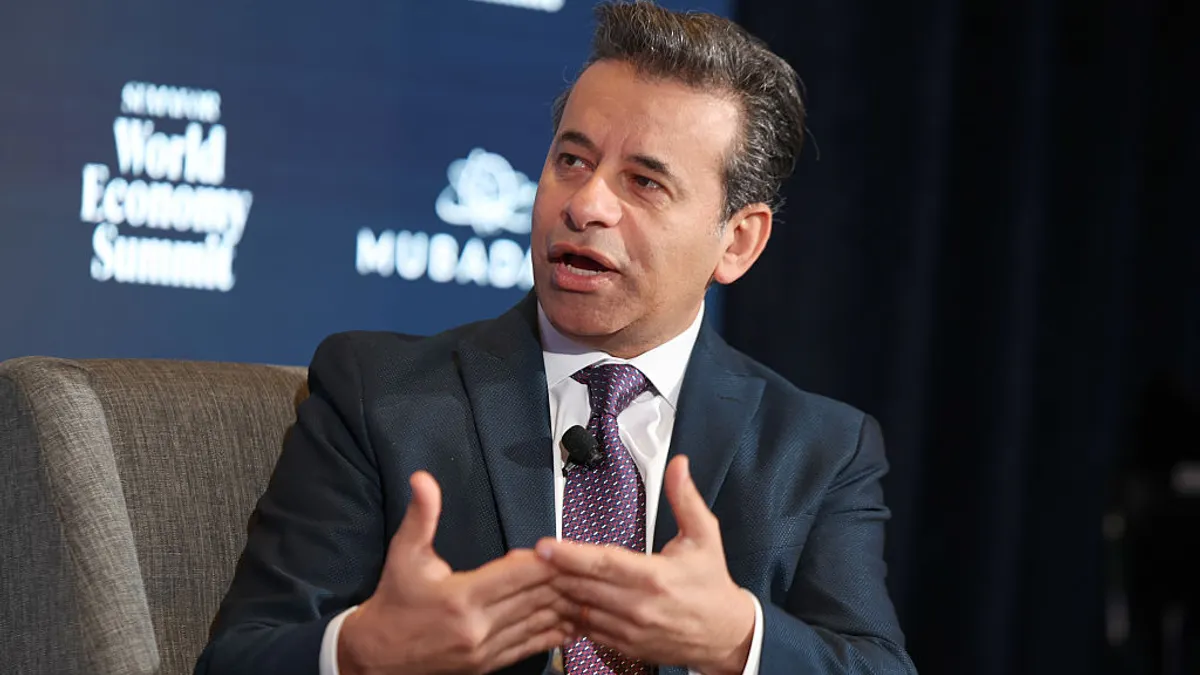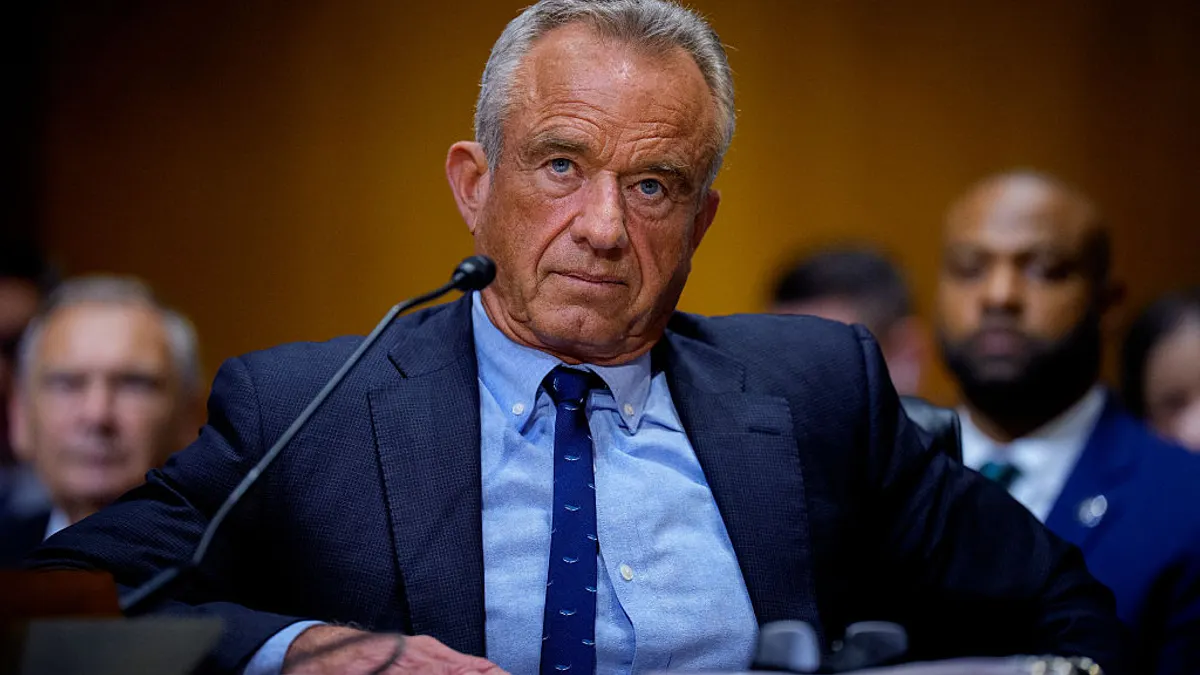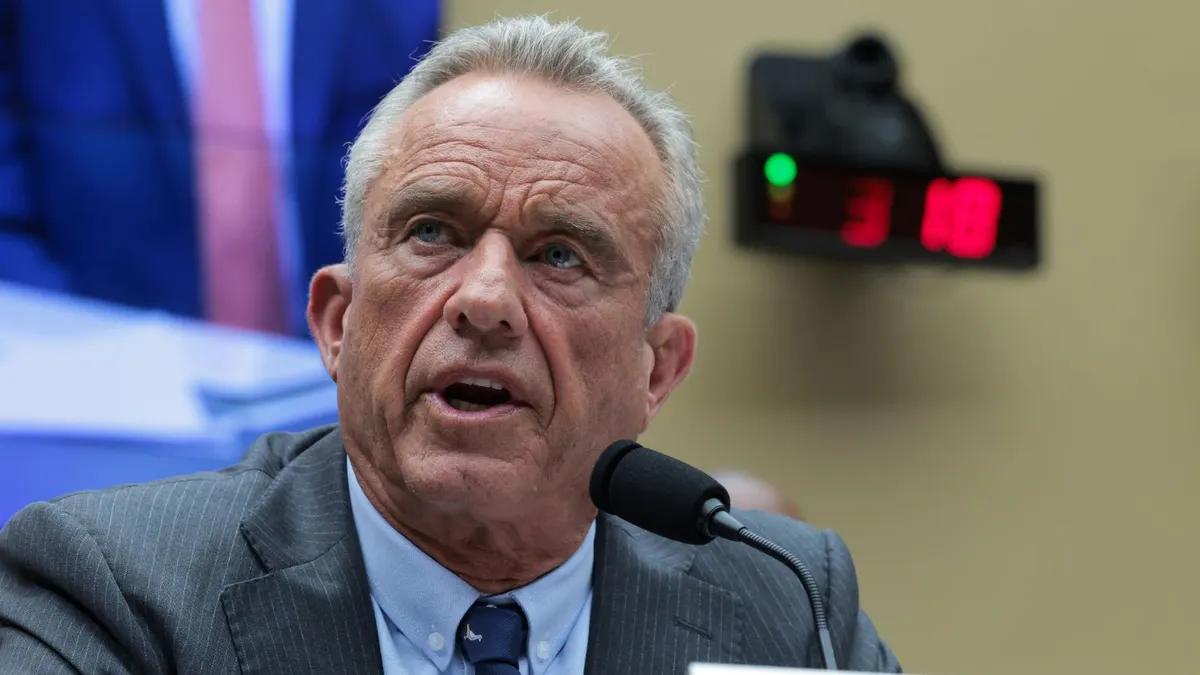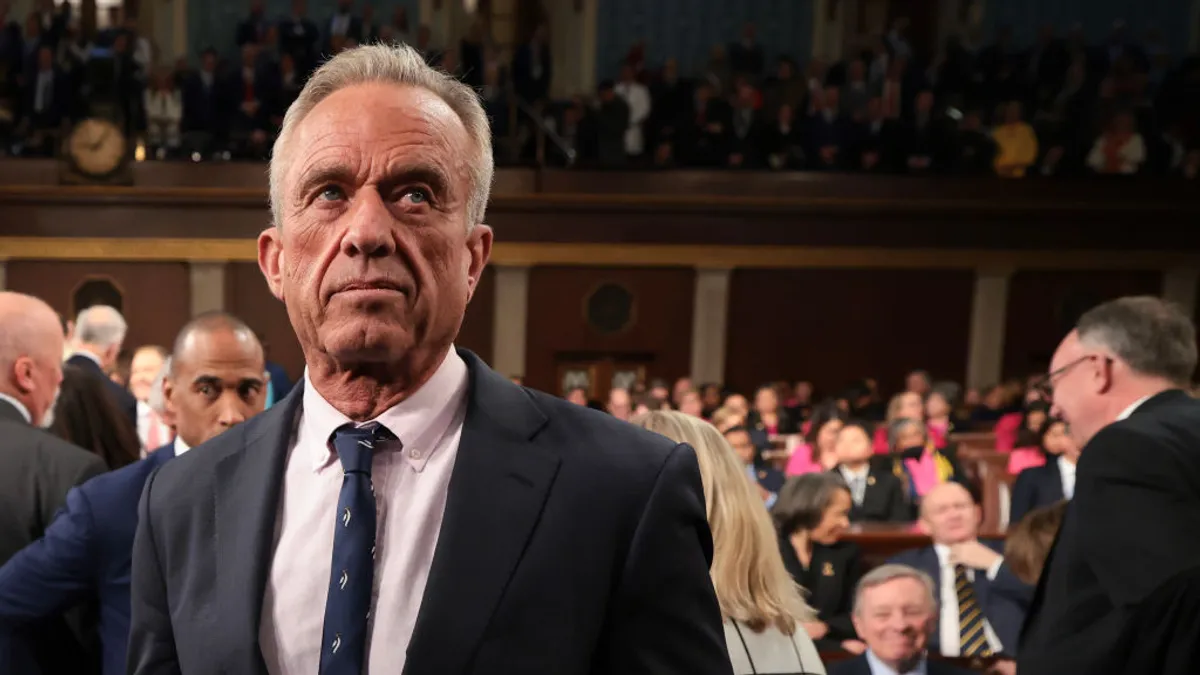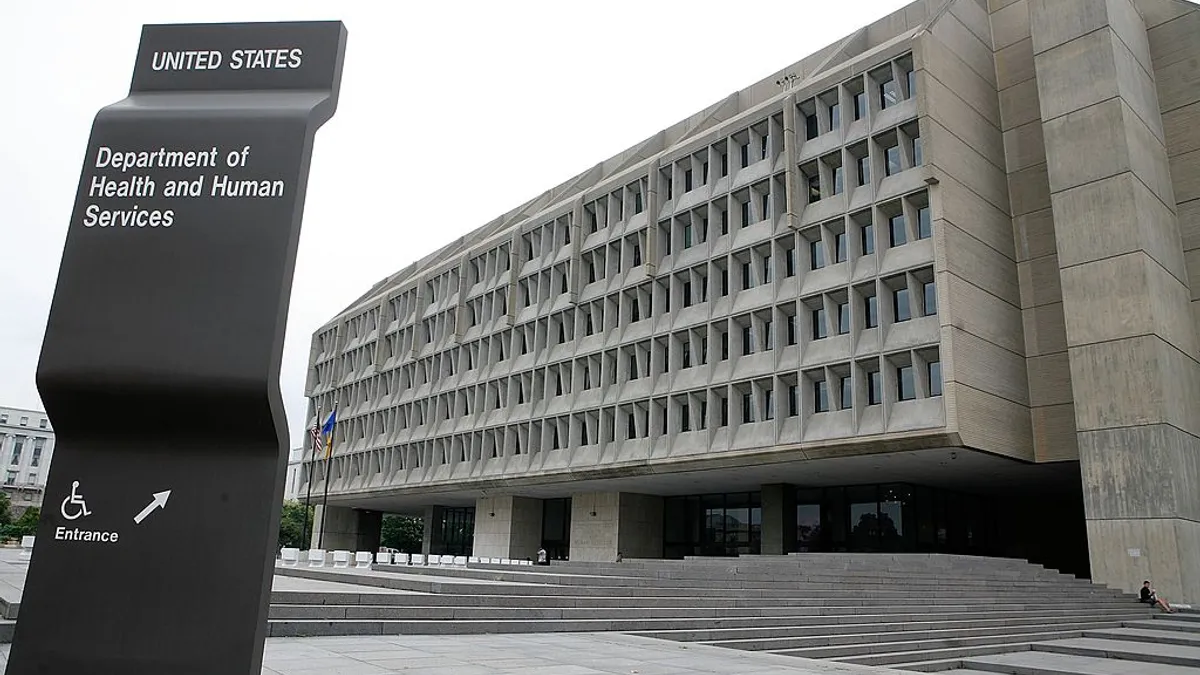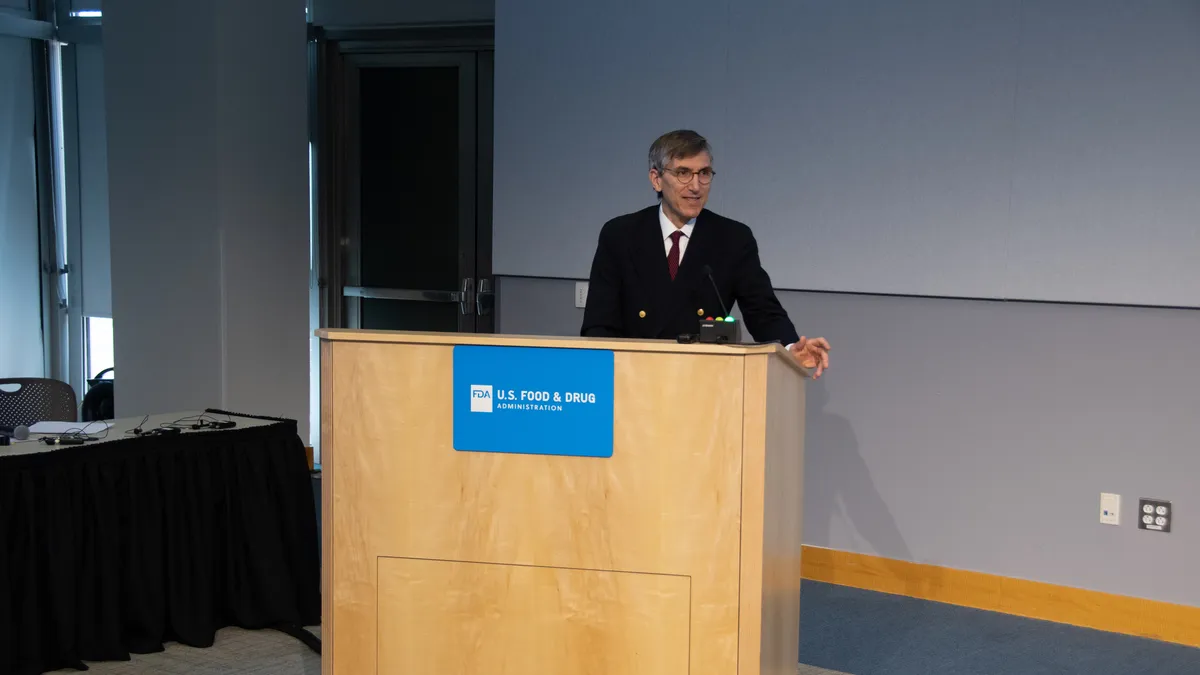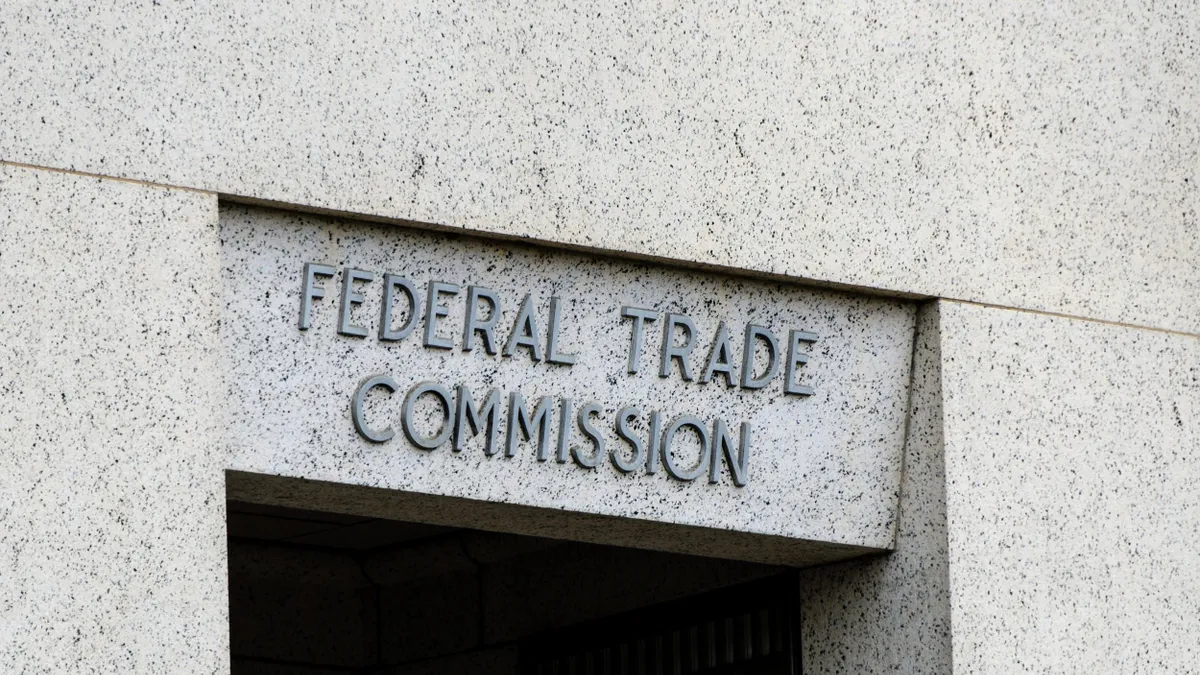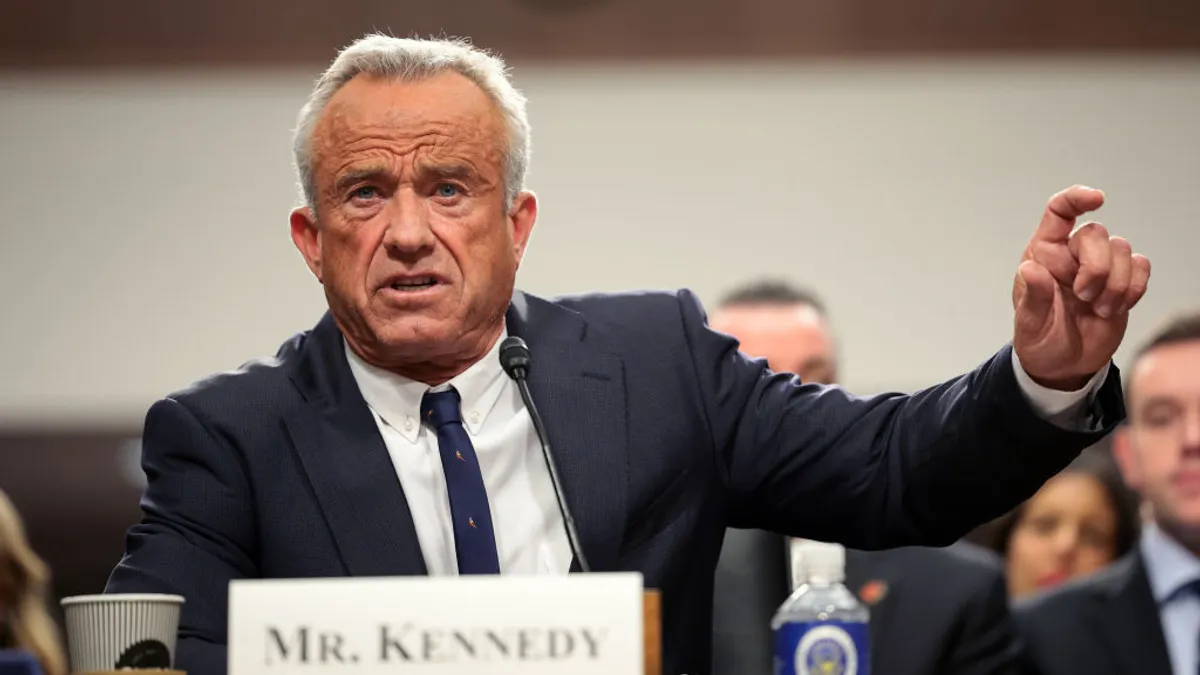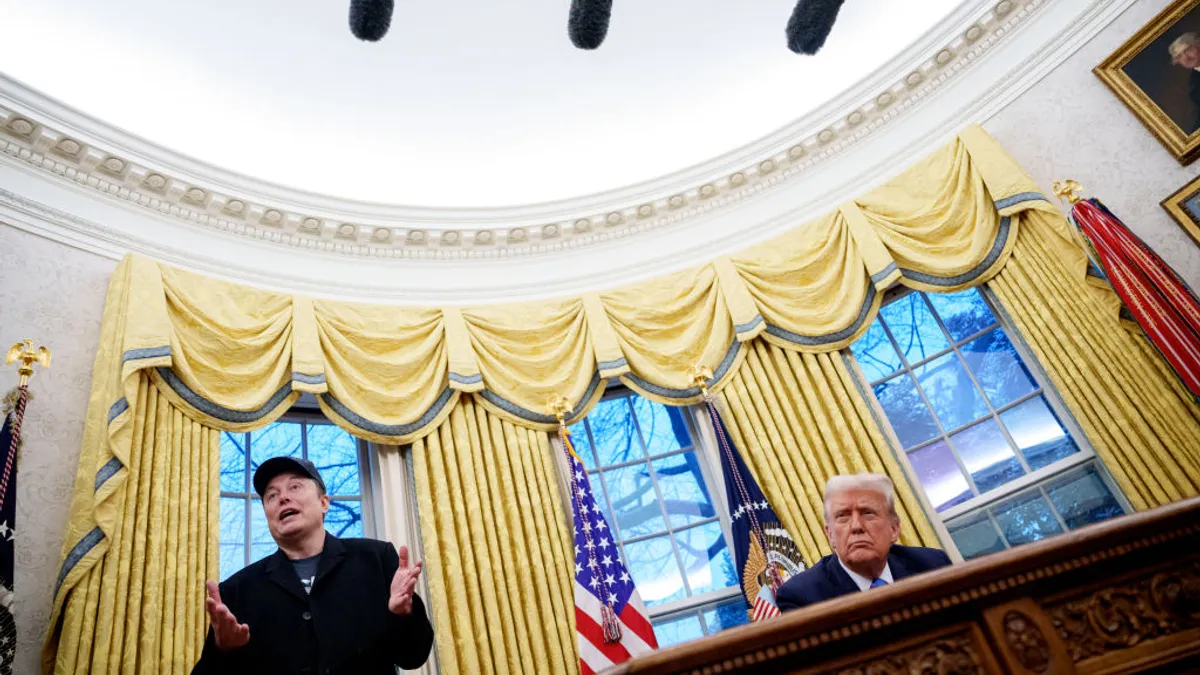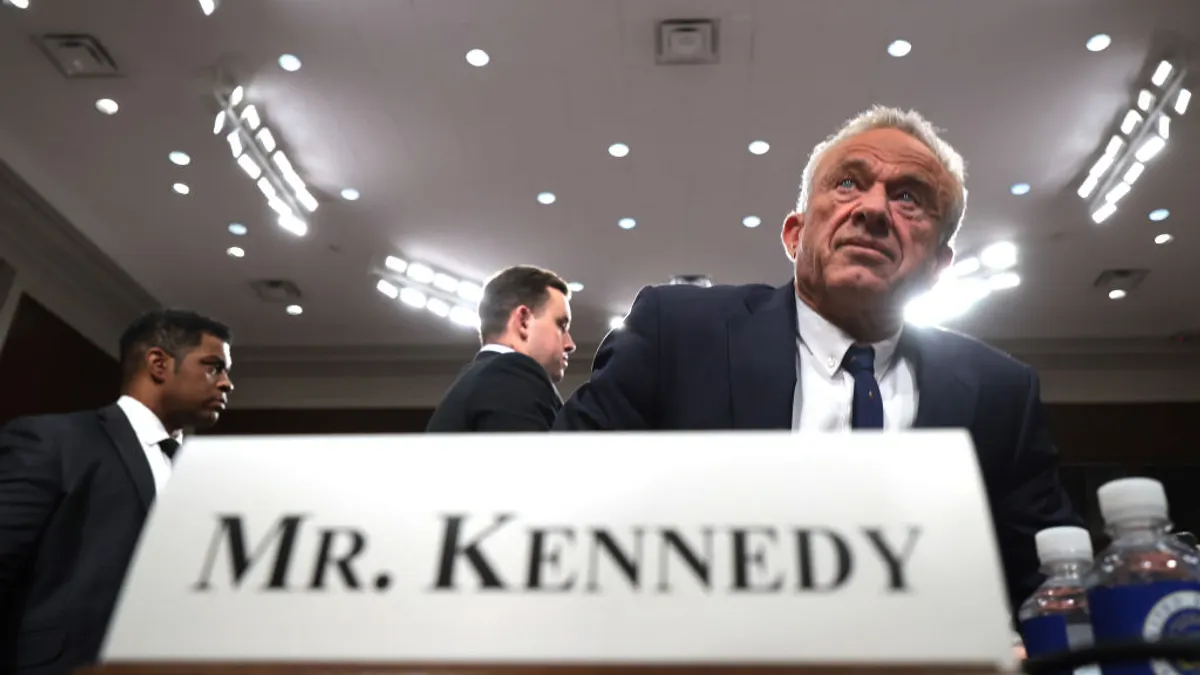Dive Brief:
- Two senior officials at the Food and Drug Administration office that regulates gene therapies have reportedly been placed on administrative leave, resurfacing questions about the way the complex medicines will be regulated under new agency leadership.
- Nicole Verdun, a director of the Office of Therapeutic Products at the Center for Biologics Evaluation and Research, and her deputy director Rachael Anatol were both put on leave, according to a report from Stat News. It’s unclear what drove the FDA’s decision, but in an email to BioPharma Dive, Andrew Nixon, director of communications for the Department of Health and Human Services, wrote that “center directors deserve to be supported by managers that are aligned with aggressive goals to expeditiously advance therapeutics for rare diseases using the gold standard of science.”
- Verdun and Anatol have been top officials at the OTP for almost two years, and in that role have “modernized the FDA’s regulatory approach to cell and gene therapy,” the Alliance for Regenerative Medicine said in a statement. Their dismissal follows the March resignation of longtime CBER director Peter Marks.
Dive Insight:
Prior to this year, cell and gene therapy research was already reeling, as murky commercial prospects led to a sustained pullback in funding for private as well as publicly traded companies.
Since then, large staffing cuts at the FDA and turnover in the senior leadership that reviews gene therapies have amplified the field’s angst. Marks’ departure was acutely felt by developers, as he’d overseen dozens of approvals and strongly advocated for the FDA to be more flexible in reviewing cell and gene-based treatments, earning both praise and criticism. Successor Vinay Prasad has long criticized Marks’ decisionmaking, raising questions about whether the agency would adopt stricter standards.
At a roundtable meeting hosted by the FDA earlier this month, many of the field’s experts warned of a crisis. “I have serious concerns about the future of cell and gene therapy in the United States,” said Carl June, an immunologist and pioneering cell therapy researcher at the University of Pennsylvania. “If we do not modernize our regulatory approach, we risk losing our leadership, undermining the long term viability of our biopharma industry.”
Prasad was receptive at the meeting, showing support for the kind of flexible trial designs and endpoints for rare conditions that he’d criticized in the past. That session seemed to appease industry watchers, taking “investors’ worst-case scenario off the table,” wrote Leerink Partners analyst Mani Foroohar, in a note to clients Thursday.
Verdun and Anatol’s surprise dismissal, though, renews “uncertainty” and “will be taken as a clear negative,” he added.
Verdun was one of the reviewers Marks controversially overruled last year in broadly approving Elevidys, Sarepta Therapeutics’ gene therapy for Duchenne muscular dystrophy. Still, like Marks, Verdun and Anatol have advocated for accelerated approvals, in the process “earning the trust and respect of the [cell and gene therapy] community and helping ensure the FDA was the global leader in the field,” the Alliance for Regenerative Medicine said in a statement.
“I have always been struck by her commitment to patients and her brilliance as a physician,” wrote Katherine High, a prominent gene therapy researcher and former head of a Children’s Hospital of Philadelphia lab Verdun trained at more than a decade ago, in an email. “She has done a great deal of good for the advancement of medicine over the course of her career.”
Verdun’s firing is “another sentiment hit and source of volatility” for cell and gene therapy, Sami Corwin, an analyst with William Blair, wrote in a client note on Friday.
Still, both Corwin and Foroohar acknowledged how Makary and Prasad have both been outspoken in supporting for cell and gene therapy, particularly for rare diseases. Industry watchers, then, are left to “read the tea leaves” following more agency turnover, Foroohar wrote.
“It’s unclear what this signals,” he wrote. “Is Prasad simply cleaning house, or was there a deeper philosophical rift between him and Verdun over the agency’s future direction?”















